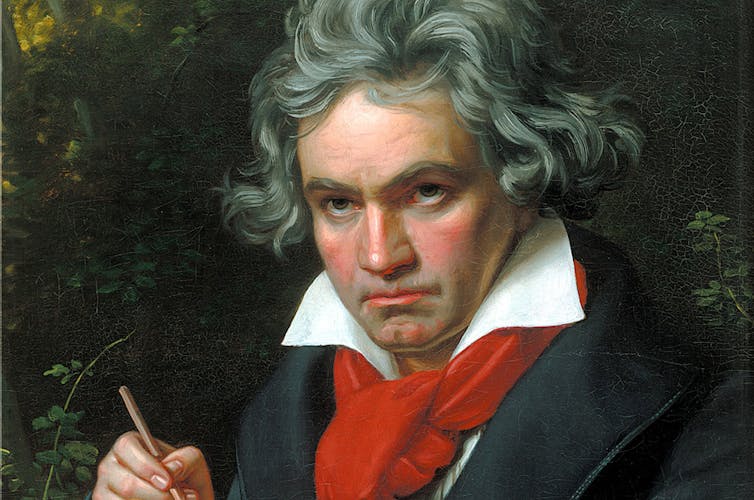Interview: How pianist Judith Jauregui captured Debussy’s ‘dreamy atmosphere’
Judith Juaregui, based in Madrid but peripatetic in her concertizing around Europe, is gaining an international audience of admirers, boosted by the brilliant pianistic colors of her Debussy, Liszt, Falla, Chopin and Mompou in her fifth CD, “Pour le Tombeau de Claude Debussy”, just out.
This album was recorded at a recital in Vienna last year, her first foray into live recording, and she is rather pleased with the result, which, she says in our interview (below), captured a “moment of honesty”. She left everything in, including the vigorous applause from the audience.

The concept for her recital, then her CD, was to portray Debussy as a kind of link, or common denominator, in the evolution of piano music. Her comparison of Debussy to impressionist painting explains her thinking behind his music. She notes in her highly articulate liner notes that Debussy launched a musical revolution “blurring forms through the purity of colors”, resulting in a “dreamy atmosphere of mystery and intimacy”.
In this impressive début live recording, she tackles the deep bass rumbling of the Liszt Ballade No. 2 with almost masculine force, and moves straight on to selections from Debussy’s Estampes. The climax of “L’Isle joyeuse” is one of the most stirring versions I have heard, and I have heard dozens. Her Chopin Andante Spianato and Grande Polonaise Brillante reveal the virtuoso power of her playing. She ends with a calm and charming “Jeunes filles au jardin” by her favorite Catalan composer Frederico Mompou.
In this video clip, she plays a graceful and exotic “Pagode” from Debussy’s three-piece “Estampes” series:
Ms. Juaregui explained her development as a pianist in our exchange of Q and A emails earlier this week.
Question : You seem to unite several strands of Europe’s musical culture. How do you see yourself in terms of nationality ?
I live in Madrid and identify with the Spanish character although I also have traits of Basque temperament. I hold Mexico in very high regard: it is the country that welcomed my grandparents during their exile in the Franco years and it is where my father, with whom I have a very special relationship, was born. When he was very young the family moved to the South of France, which is why my connection with France is emotional. My father grew up in Biarritz, studied in Bayonne and Bordeaux, lived in Paris… I was born 20 km from the border with Hendaye, and many of best childhood memories are from the other side of the border, in St. Jean de Luz, Biarritz, Getarie.
Q. Where does Germany fit in?
A. Germany is also part of my DNA. My first school was the German School, I learned to speak the language at the same as I learned Spanish. When I arrived in Munich I suddenly felt at home, everything was so familiar. So having grown up with such a mix of cultures, I feel truly European.
Q. This CD offeres a thoughtful program that charts a period of music history. How were you received in Vienna?
A. It’s a programme I love, which I have worked on intensely over recent years and in which I feel very free. The reception in Vienna was special because it was an intimate concert, with the audience very close to me, and there was a magical atmosphere.
Q. How much planning went into this recording?
A. Very little. The recording was completely spontaneous. A few days before, I only thought I wanted to have a personal memento of my first time in Vienna and so I organized to have a sound technician record some video footage as a take-away from the occasion. However, when I viewed the videos I felt there was something special in it. The sound was perhaps not optimum because the acoustics of the hall where not designed for recording purposes, but what I heard was a moment of honesty -- no filters, only the truth of the “here and now”. And so I was put in contact with ARS: they listened to it and quickly gave the go-ahead: and that’s how this album was born!
Q. You have been recording for the past ten years, I believe ?
A. ‘Yes, and this is my fifth album. The first was ‘Robert Schumann, el arte de lo pequeño’, edited in 2010 by the label Columna Música and devoted to one of my favourite composers, Robert Schumann. The following three albums where edited by BerliMusic, a label that I founded so as to have artistic freedom. It gave me the opportunity to create three very different musical journeys.
Q. What were your themes?
A. The first one is a tribute the Spanish piano tradition and Alicia de Larrocha - one of its greatest exponents -- with music by Granados, Falla and Albéniz. The second, ‘Aura’, an intimate journey through Impressionism from its precursor in Liszt, its splendour in Debussy, and its later evolution in Mompou. The third album, ‘X’, focused on the figure of Scriabin and his Sonata No.5, which begins with verses from the Poem of Ecstasy. The album unites his figure with that of Chopin as an inspiration and Szymanowski as an example of the imprint he left on other composers of the 20th century.
Q. Are you still studying ?
A. Study and learning are constants in a life devoted to music. I play for different people, and recently I have been working on Brahms’ Piano Concerto No. 1 with my teacher in San Sebastian, Cristina Navajas. Some months ago I was in Portugal with Maria Joao Pires working on several Beethoven Sonatas -- an incredible experience for me, which opened up a whole world of possibilities of sound through physical movement when playing.
Q. What are the main influences you absorbed in your training?
A. All my maestros have been fundamental for me. I began my formal studies at the age of 8 with Laurentino Gómez, who was wonderful. He immediately understood my wish to share music with others, putting me on stage from the very beginning. He created a musical group with children and would take us to different towns and villages to play, making each concert day a party: we would gather together, play together and develop friendships which in some cases last until today. I grew with the joy of sharing music without negative competitiveness or unnecessary rivalries. I was the smallest in the group and I always felt protected and taken care of by the rest.
Q. And later in your growth as a musician?
A. I completed my senior studies with Cristina Navajas, who for me today is part of my family. Cristina comes from the Parisian school, and she was the one who inculcated in me the love for sound. At that time I also met Claudio Martínez-Mehner with whom I would subsequently study my first postgraduate degree. Claudio has one of the most privileged minds I know and with him I worked a lot on musical form and analysis. And it was he who introduced me to Russian pianist Vadim Suchanov at the Munich Richard-Strauss Konservatorium where I studied for three very important years.
Q. Specifically, how did Suchnov help you?
A. I arrived there at the age of 19, very much a volcano of emotions, and he taught me to give a voice to those emotions, focusing them on the phrasing, with a detailed study of every passage of the works, resolving the technical issues that I might encounter always from the prism of musicality and naturalness.
Q. Can you single out one who dominated?
A. These four teachers together form the backbone of my studies and every one of them is substantial to me. Then there are other maestros from whom I have received advice in masterclasses and who have inspired me, as is the case of the Beethoven Sonatas with Pires.
Q. Do you feel close to the music of Catalonia?
A. Yes, one of the composers that I feel the greatest emotional connection to, Federico Mompou, is from Barcelona. I first learned his music at age 11 and since then it has never left me. The ‘Impresiones Íntimas’, the ‘Scènes d’enfants’, and the 'Variations on a theme of Chopin’... Mompou connects with something very deep inside me and in his music I find essence and purity.
Q. What further recording projects are under way ?
A. I have just finished recording my sixth album, which will come out this spring, and in it I return to the very beginnings of my recordings: Robert Schumann! This time with his wonderful concerto for piano and orchestra, accompanied by the Orquesta Sinfónica Camera Musicae and the maestro Tomàs Grau. I complete the album with solo piano works by Clara Wieck – to whom the concerto is dedicated – as well as to Robert.
Q .Where will you travel this year ?
A. I began the year with a recital concert in Madrid, and soon I will fly to Germany to play Brahms’ Piano Concerto no.1 with the Neubrandenburger Philharmonie and the maestro Claus Efland in several cities in the north of the country. On my return, the Beethoven sonatas await me in the Círculo de Bellas Artes in Madrid, and then Chopin’s Piano Concerto no.1 with the English chamber orchestra Britten Sinfonia in Bilbao. I will bring winter to a close in the United States with ‘Nights in the Gardens of Spain’ by Manuel de Falla and the ‘Spanish Rhapsody’ by Turina.
END
This article is brought to you by the author who owns the copyright to the text.
Should you want to support the author’s creative work you can use the PayPal “Donate” button below.
Your donation is a transaction between you and the author. The proceeds go directly to the author’s PayPal account in full less PayPal’s commission.
Facts & Arts neither receives information about you, nor of your donation, nor does Facts & Arts receive a commission.
Facts & Arts does not pay the author, nor takes paid by the author, for the posting of the author's material on Facts & Arts. Facts & Arts finances its operations by selling advertising space.




















